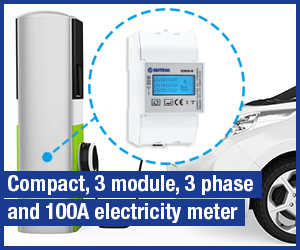Events in the EV industry are moving so fast that, even with the best will in the world, we journalists can publish things that turn out to be out of date or just plain wrong—when we do, a correction and a mea culpa are in order.
In my latest Charging Forward column, which appears in the current print issue of Charged, I wrote of “a pointless fight between the US and Europe over the Buy American provisions of the IRA/BIL,” and opined that “as the details of the new rules are worked out, they’ll surely be brought into harmony with existing free-trade agreements.”
Even when I wrote it, I should have realized that this was an overly rosy description of the situation, and recent news highlights how misleading the statement was. Sorry.
I was referring to the IRA’s revamped system of EV tax credits. While this got most of the early press, savvy observers soon realized that Section 45X of the IRA, under which battery producers can receive generous incentives for manufacturing batteries in the US, seems likely to have a much greater impact on the industry than the EV tax credits.
As John Voelcker wrote in Car and Driver, Section 45X “has the potential to make EV batteries built in the US so cheap that large swathes of Western cell and battery manufacturing will rush to locate in North America.” This is now happening.
Just a few days after my Charging Forward column went to press, we learned that Volkswagen has put a planned battery plant in eastern Europe on hold, and will prioritize a similar facility in North America. Europe’s largest carmaker told EU officials that it expects to benefit from as much as $10 billion euros in US subsidies and loans over the life of the factory.
VW says it hasn’t made any decisions on the locations of its North American or European plants, and that it still plans to build more cell factories in Europe. However, the automaker says it needs “the right framework conditions,” and is waiting to see how the EU will respond to the US incentives.
On March 14, the European Commission is due to publish a Net Zero Industrial Act, and automakers hope this will include tax breaks and grants as well as measures to streamline the permitting process for projects while preserving Europe’s environmental standards.
Unfortunately, it’s becoming clear that the sort of zero-sum Europe-vs-US competition I deplored in my column is now taking shape. Europe’s global share of new investment in battery production dropped from 41% in 2021 to a lousy 2% in 2022, according to BloombergNEF. This is surely what the European Battery Alliance had in mind when it warned last December that the Continent’s battery industry was in “crisis.”
A recent study from Transport & Environment found that, of 50 battery gigafactories currently planned in Europe, more than two thirds are at risk of being delayed, scaled down or cancelled, as the companies consider shifting investment to the US.
Volkswagen Board Member Thomas Schmall recently took part in a meeting between EU officials and representatives of automakers and battery suppliers. He said that, in order to support European battery production, governments need to provide incentives comparable to those being offered in China and North America. Numerous other industry stakeholders and policymakers have made similar appeals.
“Europe’s response should mirror the US Inflation Reduction Act in focus, simplicity and visibility,” said T&E’s Julia Poliscanova. “A central fund accessible to all member states should prioritize battery value chains, renewables and smart grids. The EU can’t compete unless it has a robust industrial policy which is focused on scaling up production and rewards environmentally sustainable projects.”
John Podesta, Joe Biden’s Senior Clean Energy Adviser, oversees the disbursement of the IRA’s $370 billion in clean energy incentives. He told the Financial Times: “We make no apologies for the fact that American taxpayer dollars ought to go to American investments and American jobs. We hope that the European industrial base will succeed, but it’s up to Europe to do some of the work.”
Establishing domestic battery production in both Europe and the US is critical, for both geopolitical and sustainability reasons. Any kind of a trade war would be a disastrous—and surely unintended—consequence. To paraphrase Mr. Podesta, if there’s to be a race, let it be a race to deal with the climate crisis.
Sources: Financial Times, Reuters, Transport & Environment


I never thought about it this way before. Thanks for opening my eyes.